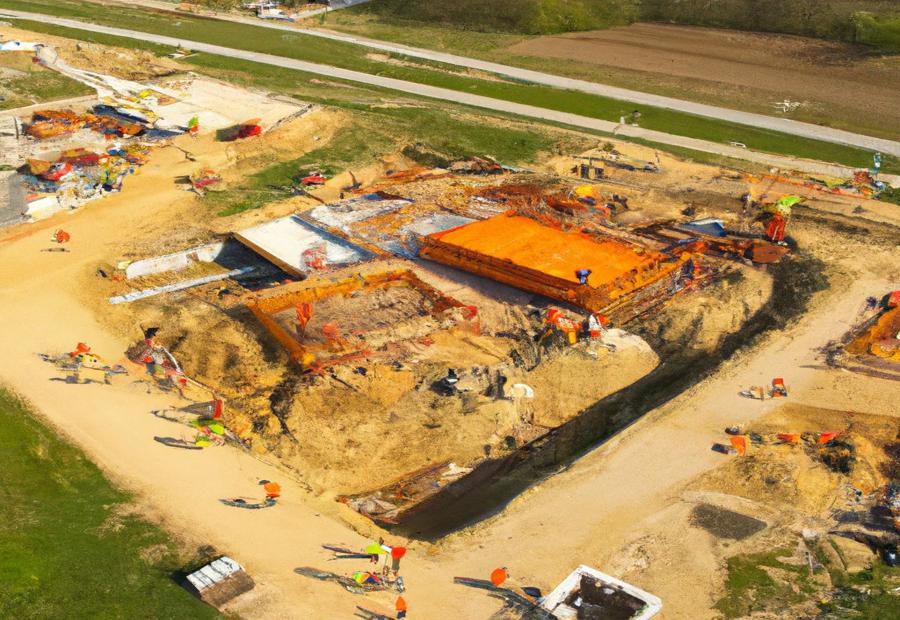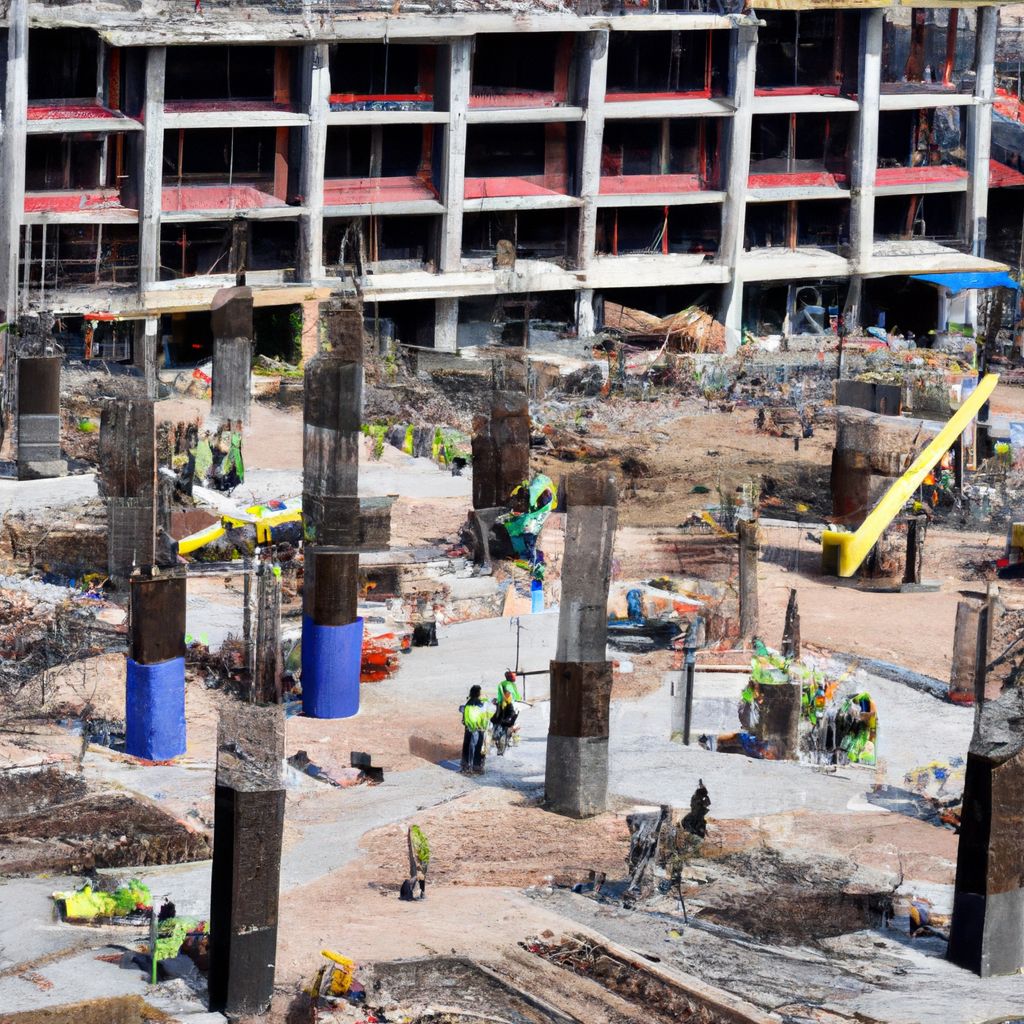Key Takeaways:
- Professional management plays a crucial role in civil construction projects by ensuring efficient planning, organization, and execution, leading to project success.
- The benefits of professional management in civil construction projects include optimized resource allocation, improved cost control, enhanced risk management, and timely project delivery.
- Successful case studies demonstrate that professional management can significantly improve project outcomes, resulting in higher client satisfaction, increased profitability, and repeat business.
- Future trends and innovations in professional management for civil construction projects include the use of advanced technologies, such as Building Information Modeling (BIM) and Artificial Intelligence (AI), to streamline project processes and improve decision-making.
- In conclusion, harnessing the benefits of professional management is crucial for the success of civil construction projects, and staying updated with the latest trends and innovations in this field is essential for continuous improvement.



Photo Credits: Build-Wire.Com by Steven Green
Professional management plays a crucial role in the success of civil construction projects. Discover the importance and numerous benefits that come with incorporating professional management practices in this dynamic industry. From ensuring efficient project execution to improving communication and coordination, professional management brings a wealth of advantages to civil construction projects. Let’s explore how these practices drive productivity, improve cost control, and enhance overall project outcomes.
Importance of Professional Management in Civil Construction Projects
Professional management is essential for civil construction projects. It helps ensure the successful completion of the project. It includes aspects such as planning, organizing, directing, and controlling resources and activities. Professional management not only accelerates the project and keeps it within budget, but also identifies and minimizes potential issues. It promotes communication and collaboration, and ensures quality and safety.
It brings many benefits, like experienced project managers with strong leadership skills. Professional management reduces delays, cost overruns, and rework. It is also transparent and accountable, and it fosters relationships with stakeholders.
Innovations are being made to benefit projects further. There’s an increasing use of BIM, drones, pre-fabricated components, green building, off-site construction, and project management tools. These developments make the process faster, more efficient, and sustainable. They also improve the overall quality of civil construction projects.
Benefits of Professional Management in Civil Construction Projects
In civil construction projects, professional management is key for successful outcomes. Applying techniques and strategies brings many benefits, such as:
- Improved project planning and coordination.
- Increased productivity and efficiency.
- Enhanced quality control.
- Reduced costs and risks.
- Better communication and collaboration between project stakeholders.
- Timely completion of the project.
These advantages show the value of professional management for civil construction. Advanced techniques and approaches make sure projects run smoothly from start to finish. Managers boost project performance and quality assurance, providing value to clients and society. Professional management will keep developing with new trends and innovations.
Successful Case Studies of Professional Management in Civil Construction Projects



Photo Credits: Build-Wire.Com by Kyle Jackson
Successful case studies of professional management in civil construction projects reveal the advantages to be gained from effective project management practices. These studies show improved coordination, increased efficiency, and more successful project delivery. Plus, project management methods lead to better cost control, improved safety, and strengthened stakeholder collaboration.
These case studies demonstrate the value of professional management for civil construction projects. They also illustrate the crucial role of professional management in executing such projects. Strategic planning, risk assessment, and resource allocation are expert techniques that enable teams to navigate complex construction processes. This proactive approach helps to detect and prevent any potential challenges or obstacles, resulting in timely and successful project outcomes.
Furthermore, professional management practices promote better communication and collaboration among stakeholders. This creates a productive work environment that increases project efficiency and effectiveness. Additionally, successful case studies of professional management in civil construction projects illustrate the importance of technology and data-driven decision-making.
By using construction management software and data analytics, project teams can optimize project scheduling, resource allocation, and cost management. This better performance is complemented by informed decisions based on accurate and real-time data. What’s more, technology and data-driven approaches boost transparency and accountability. This leads to improved client satisfaction and stakeholder confidence.
Future Trends and Innovations in Professional Management for Civil Construction Projects



Photo Credits: Build-Wire.Com by Carl Carter
The future of professional management in civil construction projects is changing drastically. There are emerging trends and innovations that aim to increase project efficiency and effectiveness. Harnessing the benefits of professional management practices through digital tools and software solutions is becoming more popular. This allows project managers to streamline processes, communicate more effectively, and make informed decisions, leading to better outcomes. Plus, integrating Building Information Modeling (BIM) with project management practices allows for visualizing, collaborating, and coordinating throughout the project lifecycle.
These advancements are expected to revolutionize the civil construction industry. Artificial intelligence and machine learning algorithms are being implemented to optimize project planning, resource allocation, and risk assessment. These systems can analyze vast amounts of data and provide useful insights. Virtual reality and augmented reality technologies are also being utilized for visualization and identifying potential issues.
Sustainability and green practices are more important than ever. Sustainable construction materials, energy-efficient designs, and environmentally conscious project management strategies are being adopted. Plus, Internet of Things (IoT) sensors are being used to monitor and optimize energy and resource consumption. Circular economy principles also promote the reuse and recycling of materials, reducing waste generation and raising sustainability.
Future trends in professional management for civil construction projects include technological advances and environmental stewardship.
Conclusion



Photo Credits: Build-Wire.Com by Alexander Baker
It’s clear: professional management is key for the success of civil construction projects. Leveraging the expertise and experience of pros can help projects beat obstacles, stay on schedule, and produce top-notch results. Professional management has its perks, like improved project efficiency, better risk management, specialized resources, and accountability among stakeholders. Investing in professional management makes sense. It’ll save time and money in the long haul, plus guarantee successful construction projects.
References



Photo Credits: Build-Wire.Com by Patrick Mitchell
Professional management is key to the success of civil construction projects. Benefits include:
- Improved planning and coordination, reducing delays.
- Cost control to avoid budget overruns.
- Risk management to stay on track and limit impacts.
- Quality assurance for superior results.
- Efficient resource allocation, reducing waste.
- Stakeholder satisfaction through communication.
For successful projects, it’s important to:
- Hire experienced project managers.
- Set clear objectives and performance metrics.
- Foster open communication.
- Review and adapt management approach regularly.
This will maximize the benefits of professional management for civil construction projects.
Some Facts About Harnessing the Benefits of Professional Management for Civil Construction Projects:
- ✅ Hiring certified construction managers is crucial for successful civil construction projects. (Source: Team Research)
- ✅ Strategic planning is essential in order to overcome challenges and allocate resources effectively in civil construction projects. (Source: Team Research)
- ✅ Construction projects require clear definitions and justifications in order to achieve better results. (Source: Team Research)
- ✅ The primary goal of construction project management is to deliver successful projects that meet quality, budget, and time requirements. (Source: Team Research)
- ✅ Construction project management offers several benefits, including optimized schedules, cost-effectiveness, compliance with regulations, and enhanced communication. (Source: Team Research)
FAQs about Harnessing The Benefits Of Professional Management For Civil Construction Projects
What is the role of certified construction managers in civil construction projects?
Certified construction managers play a crucial role in civil construction projects by directing and coordinating resources to achieve project objectives. They have the necessary skills and knowledge in construction and project management, ensuring quality services and successful project delivery.
How can construction project management software help overcome weather constraints?
Construction project management software can help mitigate the impact of weather constraints by allowing project managers to effectively plan and schedule tasks. It provides real-time updates on weather conditions, enabling proactive adjustments to project timelines and resource allocation.
What are the risks associated with hiring temporary contractors for construction projects?
Hiring temporary contractors for construction projects can pose risks such as a lack of continuity, limited accountability, and potential delays. It is important for project managers to carefully evaluate the capabilities and reliability of temporary contractors before engaging them in critical project tasks.
How does effective resource management contribute to cost control in construction projects?
Effective resource management in construction projects helps control costs by optimizing resource utilization. It ensures that the right resources with the desired skills and cost are allocated to project tasks, minimizing wastage and maximizing productivity.
What are the challenges related to cultural or political systems in construction project management?
Cultural or political systems can pose challenges in construction project management, such as differences in work practices, regulations, and decision-making processes. Project managers need to be aware of these factors and adapt their strategies accordingly to ensure smooth project execution.
How can construction firms improve resource utilization and mitigate poor communication?
Construction firms can improve resource utilization and mitigate poor communication by investing in employee training, implementing effective communication plans, and using resource planning tools. These measures help enhance collaboration, streamline workflows, and improve overall project performance.
